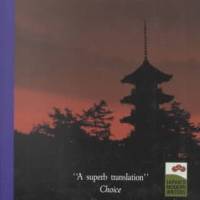It takes a brave writer to make their main character as unlikeable as Kensaku Tokito. It is even more startling because Naoya Shiga was consciously writing within the 'I' novel tradition, where the author deliberately draws on their life story for source material.
A Dark Night's Passing, by Naoya Shiga, Translated by Edwin McClellan.
408 pages
KODANSHA, Fiction.
Initially serialized in the 1920s, "A Dark Night's Passing" is a study of rootlessness. Kensaku is a dissolute literary man — a writer who spends more time in brothels than at his desk — who learns a dreadful secret about his birth. Given justification for his tendency toward self-destruction, he moves from Tokyo to Onomichi, Hiroshima Prefecture, before settling in Kyoto. He attempts to start a family, marrying Naoko and settling down. Whether he is cursed or deliberately undermining his own prospects is debatable, but misfortune rains on him and those attached to him. Their first child dies, Naoko is raped, his housekeeper has to be rescued from Occupied Korea when her plan to run a brothel goes awry, yet it's the little things that really infuriate him, and he cuts off friends for perceived slights and disrespect. Before long he's on the road again, picking quarrels with Zen priests in rural Tottori.
This is a tough book, and overlong — a common side-effect of paid serialization — but few writers have the courage to dive into truly fractured souls, and Shiga guides the reader through some fascinating, if uncomfortable terrain.
Read archived reviews of Japanese classics at jtimes.jp/essential.



